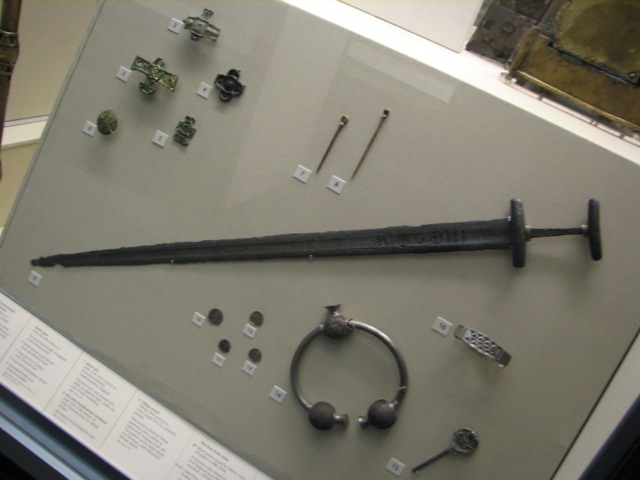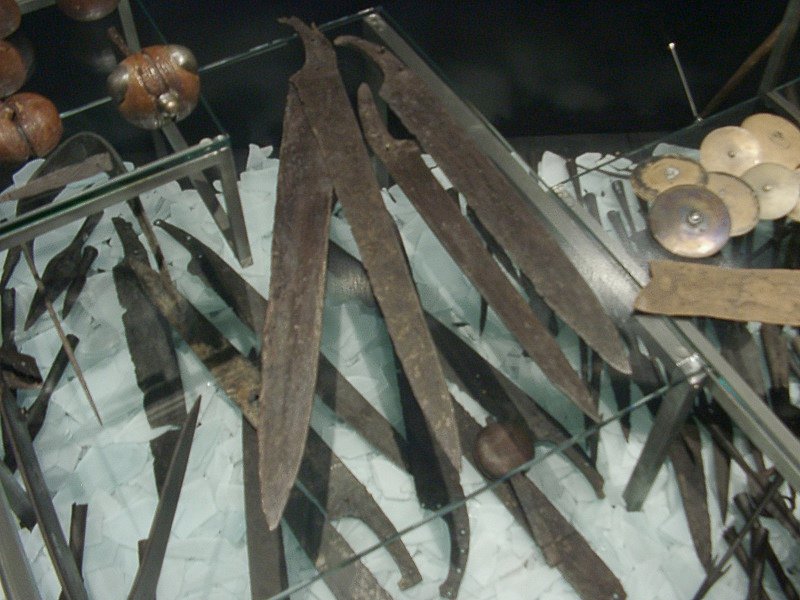Your logic is flawed unless we assume that
Oakeshott was incapable of making mistakes (obviously not true as Oakeshott was very good about pointing out his past mistakes and making corrections.) Can you find any real evidence that the word Maekir denotes a thrusting sword? Certainly Oakeshott failed to provide any evidence to back up his claim. I am simply claiming that the (possible? probable?) linguistic connection between the words used for the object could be paralleled by a connection between the objects named. Beowulf and other early Anglo-Saxon literature does contain words derived from Greek (such as Ocean.) It is entirely plausable that Maekir derives from the Greek Machaira. Of course it could be a complete coincidence that we have two very similar words in two related languages that have the same definition (in the general sense of "sword.")
Edit: A few tidbits
The sword Gram in the Edda is called a "maekir malfar" or sword with inscribed patterns. This is the sword that Sigurd used to kill the dragon by stabbing upward. An alternative story has the sword destroyed when it was struck against Odin's spear in a battle in which Odin disguised himself as a soldier.
There is no widely agreed-upon etymology for this word, but here are some possibilities that have been put forward: A borrowing from Iranian "maki", something attached to a waste-belt, it could be related to Icelandic "maki", equal, match or mate.
I was wrong about maekir being OE, it is Old Norse. It is mece in OE.
I doubt we will ever be able to solve this one, I'm going to throw it in the bin with "aetgir," "bryntvari" and such. Vikings, Anglo-Saxons and their relatives didn't feel the need to develope precise sword typologies.

